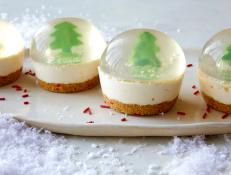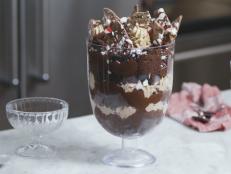1 / 12
Get the Real Facts to Better Baking
There are the constant bakers, like our contestants on Holiday Baking Championship, and there are the only-on-the-holidays enthusiasts, but there are certain “truths” anyone who has ever held a whisk will tell you: Cold cream whips faster than room temperature, if you add hot milk to eggs without stirring they will curdle, and overmix only if you like tough cake. But as we discovered, not all of our common wisdom turned out to be worth its weight in butter.







































